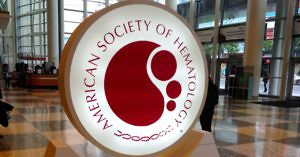New Orleans – the hematology diehards were up early yesterday for the 7.30 am oral session on some of the most interesting data at the annual meeting of the American Society of Hematology (ASH) on potential new treatments for Chronic Lymphocytic Leukemia (CLL).
Just to make sure everyone’s Fitbits were well exercised, the organizers put the session in the farthest end of the Convention center! Like many of the CLL sessions, it was a full house with multiple financial analysts sitting in the row behind me taking copious notes and pictures. Unlike at ASCO, there is no virtual meeting, so you can’t replay any of the oral scientific sessions at a later date. If you didn’t see it, you missed it! There’s no substitute for boots on the ground.
What this post is about is my subjective opinion and top-line impressions of the information presented and some of the key strategic issues and challenges that came across listening to a full presentation of the latest data. I’m not going to rehash the press releases and the abstract data, most readers have already assimilated that.
It is what it says — notes from the road — the kind of things I’d write in a trip report if I were in a company.
The four presentations covered in this post are:
Abstract 871: Dinaciclib (SCH 727965) Is a Novel Cyclin-Dependent Kinase (CDK) Inhibitor That Exhibits Activity In Patients With Relapsed Or Refractory Chronic Lymphocytic Leukemia (CLL).
Abstract 872: Bcl-2 Inhibitor ABT-199 (GDC-0199) Monotherapy Shows Anti-Tumor Activity Including Complete Remissions In High-Risk Relapsed/Refractory (R/R) Chronic Lymphocytic Leukemia (CLL) and Small Lymphocytic Lymphoma (SLL).
Abstract 873: Randomized, Phase II Dose Optimization Study Of Chimeric Antigen Receptor Modified T Cells Directed Against CD19 (CTL019) In Patients With Relapsed, Refractory CLL.
Abstract 874: Phase I Trial Of Autologous CD19-Targeted CAR-Modified T Cells As Consolidation After Purine Analog-Based First-Line Therapy In Patients With Previously Untreated CLL.
Subscribers to Premium Content can read more below:
This content is restricted to subscribers
 In the past, much of the focus at previous American Society of Hematology (ASH) meetings in this area has focused on the myriad of chemotherapy regimens and dose/schedule optimisations that followed in trying to boost patient outcomes.
In the past, much of the focus at previous American Society of Hematology (ASH) meetings in this area has focused on the myriad of chemotherapy regimens and dose/schedule optimisations that followed in trying to boost patient outcomes. It’s not the most exciting new data in this disease for me though, that honour goes to two other therapeutics of an entirely different kind. They come completely out of left field and what we saw over the last two months really caught our attention and may surprise you too.
It’s not the most exciting new data in this disease for me though, that honour goes to two other therapeutics of an entirely different kind. They come completely out of left field and what we saw over the last two months really caught our attention and may surprise you too.